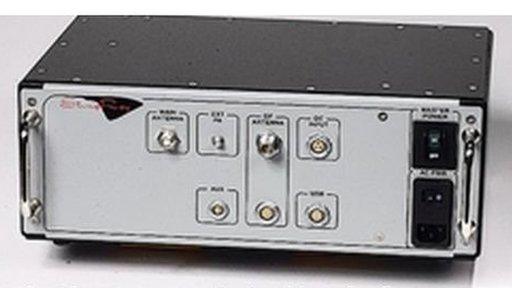US police force probed on Stingray tracking technology
- Published

The Stingray is a powerful mobile phone surveillance tool
The American Civil Liberties Union (ACLU) is probing Florida police about its use of mobile phone tracking devices, after it emerged the state spent $3m (ÂĢ1.8m) on Stingrays.
Stingrays act as fake phone towers and allow the police to track suspects via their mobile signals.
The Florida state police said that it was not able to discuss its use of the technology.
Such a response was unacceptable, said the campaign group.
"We usually see this kind of response in the national security area; from a state police agency, it's particularly indefensible," said ACLU lawyer Nathan Wessler.
"This technology raises serious questions under the Fourth Amendment. The public is entitled to full disclosure of records so it can engage in an informed debate about the legality and wisdom of these devices, and provide oversight of their use," he added.
Innocent people
Stingrays have been around for a number of years and it is widely known that the FBI uses them.
"What is new is that local law enforcement agencies seem to have acquired them. We have evidence that the police are using them in Arizona, California and Florida. We wanted to dig deeper in Florida as a case study of what is happening elsewhere," said Mr Wessler.
The portable Stingray boxes work by mimicking a mobile phone tower and tricking every phone in range into connecting to it. The connection reveals the International Mobile Subscriber Number (IMSI) and the Electronic Serial Number (ESN). It can also reveal the exact location of the user.
It is used by law enforcement agencies to home in on suspects.
"We have a couple of concerns about the way it functions. It ends up gathering the location and identifying information of hundreds or thousands of innocent people," said Mr Wessler.
He said that there were also concerns about the regulation of such devices.
"We don't know what policies the police departments have to protect people's information, whether they use filtering software or whether they are going to a judge or getting other authority to use these things," he added.
Non-disclosure
Explaining why it has decided to start asking questions about the use of Stingrays, he said: "We were partly motivated by the discovery that the Tallahassee Police Department had argued in court to permanently seal court records discussing its Stingray use, apparently in deference to a non-disclosure agreement with the device's manufacturer."
The manufacturer is Florida-based Harris Corporation. According to procurement records obtained by technology news sitethe firm has earned more than $40m (ÂĢ24m) from contracts with city, state and federal US authorities since 2004.
No comment was received from the firm by the time of publication.
Meanwhile the Florida Department of Law Enforcement (FDLE) told the ģÉČËŋėĘÖ: "FDLE has provided all non-exempt documents pursuant to this request. The ACLU has submitted a subsequent request that we are currently reviewing."
- Published29 October 2013
- Published3 July 2013
- Published18 March 2014